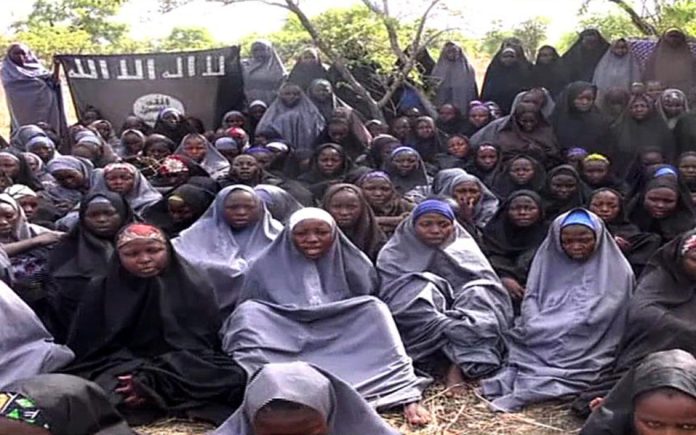98 Chibok school girls abducted by Boko Haram remain in captivity; More than 61 children are still being held in captivity two years after they were abducted by gunmen; Lack of accountability for crimes against children emboldens impunity.
Nine years after Boko Haram abducted 276 students from a girls’ school in Chibok, 98 girls are still being held by Boko Haram and a slew of abductions have taken place since, revealing the utter failure of the Nigerian authorities to learn from the heartbreak of Chibok and, ultimately, to protect children, Amnesty International said today.
Since the Chibok school girls were abducted by Boko Haram, a plethora of schools have been targeted, with girls being abducted, raped, killed or forced into “marriages”. The Nigerian authorities, however, have not carried out a single credible investigation into the security failures that left children vulnerable to the atrocities committed by Boko Haram and gunmen.
“Parents of the 98 Chibok school girls who are still being held by Boko Haram — as well as other children abducted by gunmen — are living in anguish, knowing that their children are in the hands of ruthless individuals who subject their loved ones to chilling brutalities,” said Isa Sanusi, Acting Director of Amnesty International Nigeria.
“It is beyond time that the Nigerian authorities took meaningful action to counter armed groups like Boko Haram and gunmen. Nigeria has an obligation to implement safeguards to protect all children, and the lack of accountability for these callous crimes is fueling impunity. The missing Chibok school girls should be returned home to their families, and all those responsible for committing grave violations must face justice.”
Between December 2020 and March 2021, there have been at least five reported cases of abductions in northern Nigeria, including from schools, at Kankara, Kagara, Jangebe, Damishi Kaduna, Tegina and Yawuri while the threat of further attacks has led to the closure of over 600 schools in the north of the country.
The missing Chibok school girls should be returned home to their families, and all those responsible for committing grave violations must face justice
Missing Chibok schoolgirls abandoned
At the end of March, Amnesty International interviewed five Chibok school girls who had escaped from Boko Haram and their parents. They said they had lost almost all hope that the other 98 girls would ever be rescued.
One of the returnees told Amnesty International: “The Nigerian government should not forget about the remaining 98 girls. They should be rescued. Every morning I wake up and recall the condition I left them in. I cry, I feel sorry for them. Nine years is too long to be in such a deplorable condition. The government must fulfill its promise of rescuing all the girls.”
Victims’ parents are concerned that the girls who refused to be “married” by Boko Haram are suffering brutal treatment every day.
One of the parents told Amnesty International: “Our pain is endless because 14 of the girls came back with 24 children. We have with us grandchildren whose fathers are unknown to us. Our burden has now multiplied as we do not have the money to bear the additional burden of feeding, educating, and [providing] healthcare for our returnee children and grandchildren. This is in addition to the societal rejection and stigma that we are all facing. We are just hopeless!”
Parents of Chibok girls who are still being held by Boko Haram, told Amnesty International that the Nigerian authorities no longer communicate with them and have ultimately abandoned them.
Since February 2021, northern regions of Nigeria have suffered repeated attacks on schools and religious institutions. Of the more than 780 children who have been abducted for ransom, more than 61 children are still being held in captivity two years after they were abducted by gunmen. Many schools in the region were shuttered — and remain closed — due to rising insecurity.
“Rescuing the remaining Chibok girls is of paramount importance; the task of finding them should not become yet another failed project of the government. It is absolutely crucial that the outgoing government of Nigeria does all in its power to bring these girls — as well as all other children being held by various armed groups — home to their families,” said Isa Sanusi.




